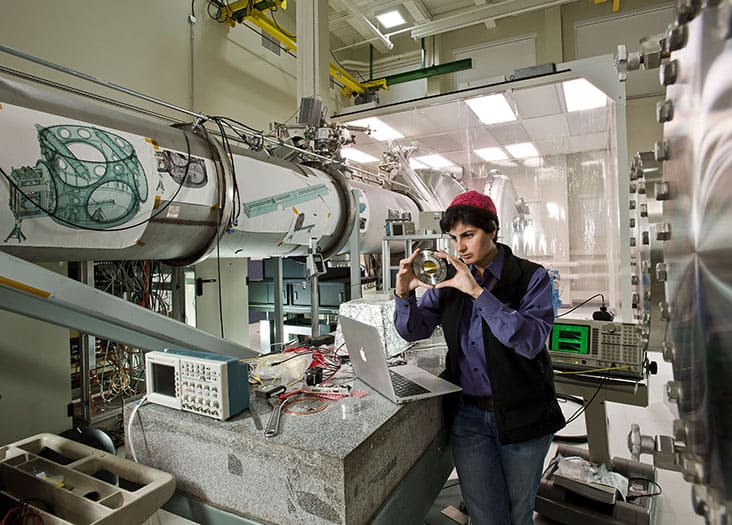NEW YORK – Nergis Mavalvala, a Pakistani-American astrophysicist known for her role in the first observation of gravitational-wave detection, has been appointed the new dean of the prestigious Massachusetts Institute of Technology school of Science (MIT), according to The MIT News.
Ms. Mavalvala, 52, who was born in Lahore and raised primarily in Karachi, is the first woman to serve as dean in the institute’s history.
She will become the new dean from September 1 and will succeed Michael Sipser, who will return to the faculty as the Donner Professor of Mathematics after six years of service, the report said.
Ms. Mavalvala, the Curtis and Kathleen Marble Professor of Astrophysics, was a leading member of the Laser Interferometer Gravitational-Wave Observatory (LIGO), which conducted the pioneering work in gravitational-wave detection.
“She has received numerous awards and honours for her research and teaching, and since 2015 has been the associate head of the Department of Physics, the report said.
“Nergis’s brilliance as a researcher and educator speaks eloquently for itself,” says MIT President L. Rafael Reif. “What excites me equally about her appointment as dean are the qualities I have seen in her as a leader: She is a deft, collaborative problem-solver, a wise and generous colleague, an incomparable mentor, and a champion for inclusive excellence. As we prepare for the start of this most unusual academic year, it gives me great comfort to know that the School of Science will remain in such capable hands.” Provost Martin Schmidt, who announced the news Tuesday in a letter emailed to the MIT community, said, “I very much look forward to working with Nergis and to benefiting from her unerring sense of scientific opportunity, infectious curiosity, down-to-earth manner and practical wisdom.
“I hope you will join me in congratulating her as she brings her great gifts as a leader to this new role.” On her part, Ms. Mavalvala was quoted as saying, “We’re in this moment where enormous changes are afoot. We’re in the middle of a global pandemic and economic challenge, and we’re also in a moment, at least in US history, where the imperative for racial and social justice is really strong.
“As someone in a leadership position, that means you have opportunities to make an important and hopefully lasting impact.”
Ms. Mavalvala, a Parsi, attended the Convent of Jesus and Mary in Karachi, where she received her O-Level and A-Level qualifications. She moved to the United States in 1986 and enrolled at Wellesley College, Massachusetts, where she received a bachelor’s degree in physics and astronomy in 1990.
Ahead of her graduation in 1990, Mavalvala and her physics professor, Robert Berg, co-authored a paper in Physical Review B: Condensed Matter. She also helped set up his laboratory. She went on to do her PhD in physics from MIT in 1997.
Before that, she was a postdoctoral associate and then a research scientist at the California Institute of Technology (Caltech), working with LIGO.
She also received the prestigious MacArthur Foundation Award in 2010. Later in 2016, Mavalvala was part of a team of scientists credited with the discovery of gravitational waves, inaugurating a new and historic era of astronomy. .
“We are really witnessing the opening of a new tool for doing astronomy,” Mavalvala had said at that time. “We have turned on a new sense. We have been able to see and now we will be able to hear as well.













